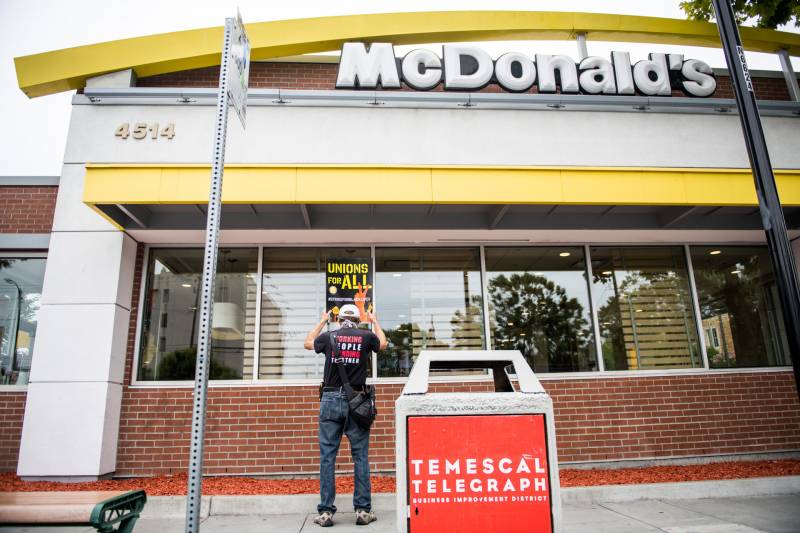Legislation empowering a new state council to set wages and working standards for California’s fast food restaurants passed the state Assembly on Monday, a major milestone for supporters of the controversial plan to increase oversight of the historically low-wage industry.
Staring down a Monday deadline to act, lawmakers voted 41-19, largely along party lines, to send Assembly Bill 257, or the Fast Food Accountability and Standards (FAST) Recovery Act, to the state Senate.
“Despite the fast food industry’s rapid growth in California’s private sector, employees’ wages continue to reflect some of the lowest in the state,” said Assemblymember Chris Holden, D-Pasadena, the bill’s author.
While California’s powerful labor unions have won recent state and local minimum wage hikes for the lowest-wage workers, the fast food industry has fought off attempts at unionization, preventing workers from making further wage and workplace gains through collective bargaining.
“They can’t even get to a place, because it’s a fragmented industry, to where they can organize and have a labor union,” said Holden. “If you did, then you have that protection, you have someone to muscle in and say, ‘Franchisors, you’re not treating me right.'”

